Next Election: A Replay of Old Politics?

The heavy odds that the main opposition party is facing in its attempt to carve out a political space, and exercise its democratic rights, is apparent from the way its political programmes are being foiled by the ruling party cadres. It is difficult to believe that these are being done without the knowledge or consent of Awami League high-ups. What we see happening on the streets is making a mockery of our democracy – despite the prime minister saying that the opposition should be allowed to take to the streets without harassment. It casts doubts on the next parliamentary election.
But one who is familiar with our politics and remembers the Awami League's strategy to foil BNP's political programmes would notice a continuity in its plan vis-a-vis the BNP. Recall the times in 2017, during the Awami League's third tenure in power, how BNP's call for a rally in Dhaka in November was foiled by the ruling party.
The police administration stopped traffic on the highways leading to Dhaka from various districts. Public transports went off the road, being owned and controlled by a syndicate composed of ruling party leaders or their allies. Travellers had to endure indescribable hardships, being stranded on the highway. All these to ensure that BNP supporters could not reach Dhaka on the day of the rally. Newspapers had carried vivid reports of how an agency that is meant to serve the people, irrespective of party affiliations, was made an instrument for suppressing democracy and violating constitutional rights of the citizens.
All manner of excuses were offered by the police, the prime one being the need to search all incoming traffic for the sake of security. Dhaka residents felt the brunt, too, since public vehicles were far and few between that day. The blame for the situation was put, predictably, on the transport workers, but the most hilarious of the comments was made by the transport minister, who, when asked by journalists on November 12, 2017 about the BNP's allegations that the police were acting at the behest of the government, very cynically said, "This must be investigated to see who is obstructing them. The BNP does tend to get in its own way."
The ruling party has been acting in the same vein since 2010 when dealing with the BNP. And we have been continually commenting on the gradual shrinking of space for opposition politics. But it is not only opposition parties. Any demonstration, criticism, comments have been dealt with an iron fist. One has not forgotten the way people, demonstrating for road safety, were mauled by the police who were augmented by the ruling party men. This, surprisingly and unfortunately, has become a recurring phenomenon when it comes to tackling anti-government rallies.
So far, the year 2022 has been no different. What is outrageous and unacceptable is the police turning a blind eye and, in some cases, actively participating in perpetrating violence on the opposition party members. The violent attacks on BNP rallies in all parts of the country are not only reminiscent of the past, but they also forebode an uncertain political future – the likelihood of perpetuation of a regime strutted, again, by questionable voting, aided and abetted by a very willing administration and agencies who are funded by public money but act in a partisan manner.

While the BNP and other opposition parties have been at the receiving end of police action in most cases, police action recently against Awami League cadres – and that is a very unusual phenomenon – have received quick and firm riposte from the administration. A senior police official in Barguna district was promptly posted out, an inquiry commission was instituted and a pacification meeting was held with central BCL to assuage their feelings for the "same side" action. Police baton-charged to disperse two warring factions of the Bangladesh Chhatra League (BCL) on August 15, who at one point vandalised a police vehicle too. Conversely, note the manner of police behaviour when it comes to BNP or its affiliated organisations. Do we need a better graphic illustration of a politicised police? How does one expect a level playing field when the election time comes closer and closer?
It is unfortunate how violence and confrontation have become indices of determining the political credentials of a party. "Control of the streets" has become the be all and end all of a political programme. And a new dangerous pattern has emerged where houses and businesses of BNP members are being targeted by Awami League cadres.
Awami League General Secretary Obaidul Quader has threatened to deal BNP with an iron hand if it wants to create anarchy on the streets in the name of movement. Very well and good insofar as his anti-anarchy stand goes. But dealing with anarchy is not the job of a political party, but of the law enforcement agencies. But then, we tend to forget that the two have become synonymous.
We are glad that the Awami League is reminding us of the past arson attacks; they have not forgotten about it, and neither have we. But we would like to know the disposal of cases against those arrested for allegedly carrying out arson on buses in 2014. How many of those arrested were actually BNP and opposition members? What has become of the charges against them? Reportedly, not all of those arrested for involvement in the said attacks belong to the opposition parties.
It is clear that a policy of inculcating fear in the opposition is being applied. It is also apparent, from what has transpired in the last fortnight, that any attempt to exercise political rights, and to seek space, will be curbed by force. It appears that the order of things, leading up to the elections and up to election day, would be dictated by the ruling party, and the democratic institutions, including the Election Commission, would be able do little except pretending to do something. A gloomy note, but that is the reality.
Brig Gen Shahedul Anam Khan, ndc, psc (retd) is a former associate editor of The Daily Star.

 For all latest news, follow The Daily Star's Google News channel.
For all latest news, follow The Daily Star's Google News channel. 
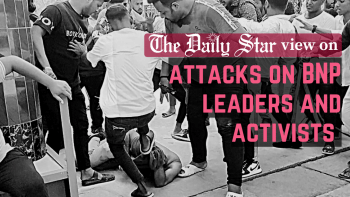
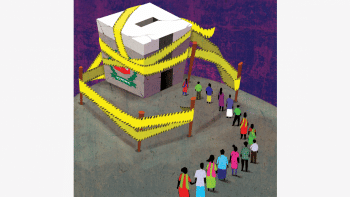


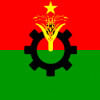
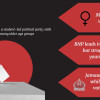


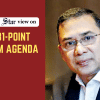


Comments